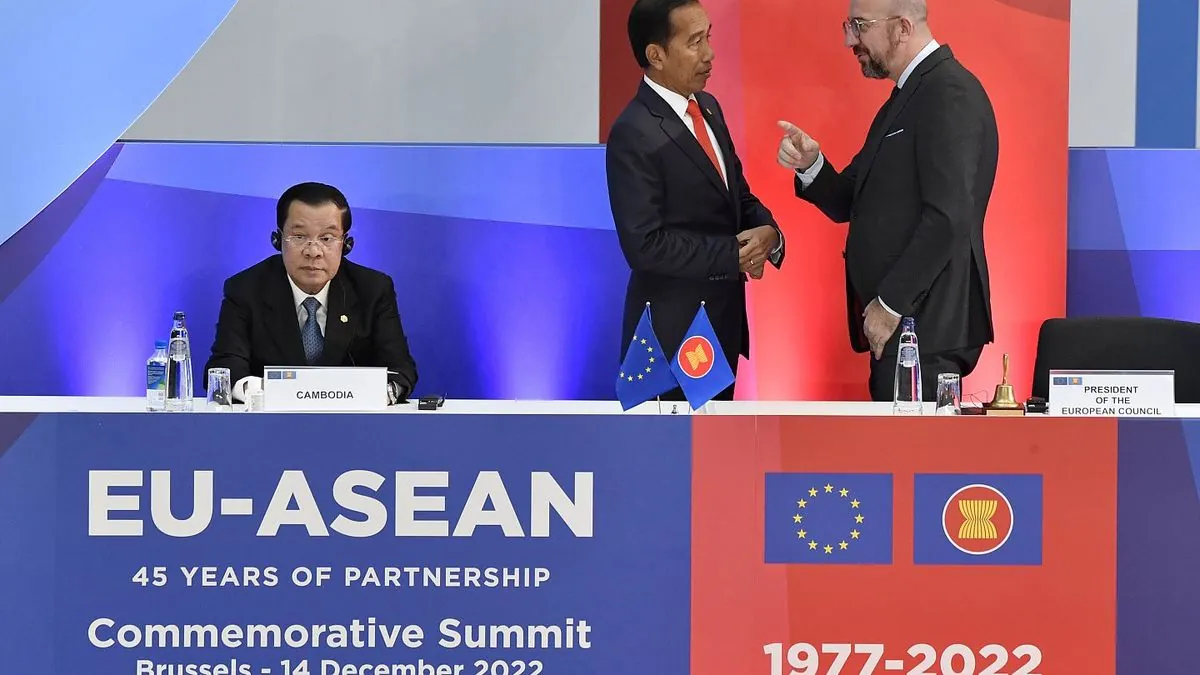The European Union is considering new sanctions to disrupt Russia's war supply chain, as revealed by the EU's sanctions envoy, David O'Sullivan. Speaking at a Brussels think tank event, O'Sullivan outlined potential measures targeting financial institutions and Western subsidiaries in Southeast Asia that facilitate the flow of battlefield products to Russia.
Since Russia's full-scale invasion of Ukraine in 2022, the EU has imposed 14 packages of sanctions. While acknowledging that sanctions are not a "magic bullet," O'Sullivan emphasized their role in making it more challenging, time-consuming, and costly for Russia to sustain its war machine.
The EU has made progress in reducing sanction circumvention through Central Asian states, including Kazakhstan, Uzbekistan, and Armenia, through diplomatic efforts. However, Southeast Asia presents a more complex challenge, as it serves as a production hub rather than merely a transit point.
"A lot of the product going through China is made by subsidiaries of western companies in southeast Asia."
O'Sullivan's recent visits to Vietnam, Thailand, and Malaysia underscore the EU's commitment to addressing these issues. The focus is on identifying financial institutions potentially funding the trans-shipment of battlefield products to Russia. These institutions may face the risk of being listed if they do not cease their activities.
The EU is also working to harmonize the implementation of sanctions across its 27 member states, recognizing the growing challenge of ensuring consistent enforcement. Despite these efforts, O'Sullivan acknowledged the ongoing "whack-a-mole" nature of listing companies selling dual-use goods to Moscow.
Looking ahead, O'Sullivan predicts that the cumulative effect of sanctions imposed by the EU and Western powers will become increasingly evident in the next one to two years. He suggests that Russia's shift to a war economy will have significant long-term consequences for its economic future.
The EU's approach mirrors actions taken by the United States, which has successfully targeted financial institutions supporting Russia's war effort. As the situation evolves, the EU aims to leverage its economic influence to impede Russia's military capabilities while navigating the complex landscape of global trade and production networks.
This ongoing effort reflects the EU's commitment to supporting Ukraine and maintaining pressure on Russia, two years after the full-scale invasion began. As the conflict continues, the effectiveness of these measures in reshaping Russia's economic landscape and military capabilities remains a critical point of interest for policymakers and observers alike.
